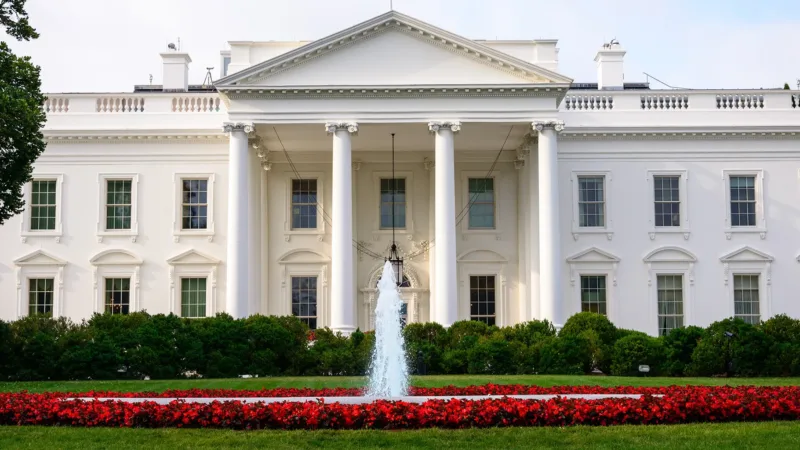A brief overview of the key points and implications of the new policy for legal professionals
On October 30, 2023, President Joe Biden issued an Executive Order on Safe, Secure, and Trustworthy Artificial Intelligence, which aims to promote the development and use of artificial intelligence (AI) in the United States, while ensuring its alignment with the values and interests of the American people. The order establishes a set of principles and guidelines for federal agencies to follow when designing, acquiring, deploying, and overseeing AI systems, as well as a framework for cooperation and coordination among various stakeholders, including the private sector, academia, civil society, and international partners.
The Executive Order is a significant step in the recognition and regulation of AI as a powerful and pervasive technology that affects every aspect of society, including the legal sector. In this blog post, we will summarize the main points of the order and discuss what it means for legal professionals and what they need to know to adapt and thrive in the era of AI.
Jump to ↓
The actions and guidelines for federal AI
The implications for the legal sector

AI news and insights
Industry-leading insights, updates, and all things AI @ Thomson Reuters
Join community ↗The actions and guidelines for federal AI
The order defines AI as “any computer system or application that performs tasks that normally require human intelligence, such as perception, reasoning, learning, decision making, or natural language processing.” It also acknowledges that AI can bring immense benefits to the economy, security, health, education, and environment, but also poses significant risks and challenges, such as bias, discrimination, privacy, security, accountability, and human dignity.
To address these issues, the order directs the following actions to drive safe, secure, and trustworthy development of AI:
New standards for AI safety and security
The Executive Order requires developers of powerful AI systems to share safety test results with the government, sets rigorous standards for testing AI systems before public release, and addresses AI-related risks to critical infrastructure and cybersecurity.
Additionally, the order focuses on protecting against the misuse of AI in engineering dangerous biological materials, detecting AI-generated content, and enhancing cybersecurity through AI tools. It also directs further actions to ensure the safe and ethical use of AI by the military and intelligence community.
Protecting American’s privacy
To protect Americans’ privacy from the risks posed by AI, the President urges Congress to pass data privacy legislation and directs actions to enhance privacy protection, including enhancing research and technologies that prioritize privacy protection, evaluating data collection practices, and establishing guidelines for federal agencies. These measures aim to safeguard personal data and promote responsible AI use.
Advancing equity and civil rights
The Biden-Harris Administration is taking action to prevent discrimination and bias in AI. This includes providing guidance for landlords, federal benefits programs, and federal contractors to ensure that AI algorithms are not utilized in a manner that perpetuates or amplifies discrimination, addressing algorithmic discrimination, and promoting fairness in the criminal justice system by developing AI best practices for sentencing.
Standing up for consumers, patients, and students
AI has the potential to benefit consumers through improved products and affordability, but it also poses risks of harm. To safeguard consumers and maximize AI’s positive impact, the President will focus on advancing responsible AI use in healthcare, including the development of affordable and life-saving drugs, and establishing a safety program to address any AI-related harms in healthcare.
Additionally, efforts will be made to harness AI’s potential in education by providing resources to educators for deploying AI-enabled educational tools like personalized tutoring.
Supporting workers
To address the impact of AI on jobs and workplaces, the President directs actions to develop approaches to minimize the negative impacts and maximize the advantages of AI for the workforce. Furthermore, a report will be produced to study the labor-market impacts of AI and explore options for supporting workers facing disruptions.
Promoting innovation and competition
The Executive Order aims to maintain America’s leadership in AI innovation by catalyzing research through the National AI Research Resource and providing grants for vital areas like healthcare and climate change. The order also promotes a fair, open, and competitive AI ecosystem by supporting small developers and assisting in commercializing AI breakthroughs.
Additionally, existing authorities will be used to streamline visa processes and attract highly skilled individuals to study, work, and contribute to critical areas.
Advancing American leadership abroad
The Biden-Harris Administration recognizes that AI’s challenges and opportunities are global and will collaborate with other nations to ensure safe and trustworthy deployment. This involves expanding engagements with various partners to establish robust international frameworks that effectively leverage AI’s benefits, manage risks, and prioritize safety.
They will also accelerate the development and implementation of essential AI standards and promote responsible AI use abroad to address global challenges and safeguard critical infrastructure.
Ensuring responsible and effective government use of AI
The President is taking steps to ensure responsible government deployment of AI and modernize federal AI infrastructure. This includes issuing guidance for agencies on AI use, improving procurement and deployment, facilitating faster acquisition of AI products and services, and accelerating the hiring of AI professionals while providing training for employees at all levels.
The implications for the legal sector
The Executive Order on AI has significant implications for the legal sector, as it affects both the demand and the supply of legal services. On the one hand, it creates new opportunities and challenges for legal professionals as they will need to advise and represent clients on various legal issues related to AI such as compliance, liability, intellectual property, contracts, ethics, and human rights. On the other hand, it also affects the way legal professionals operate and deliver legal services, as they will need to adopt and use AI systems in their own work, such as document review, research, analysis, drafting, and prediction.
To succeed in this new environment, legal professionals will need to acquire and update their knowledge and skills on AI, both as a subject matter and as a tool. They will need to understand the technical, ethical, and social aspects of AI, as well as the legal and regulatory frameworks that govern its use. They will also need to develop their digital literacy and competence and learn how to use AI systems effectively and responsibly while maintaining their professional standards and obligations.
AI’s future
The Executive Order on AI is a landmark policy that reflects the growing importance and impact of AI in the United States and the world. It sets out a vision and a direction for the development and use of AI that is safe, secure, and trustworthy, and that serves the public interest and the common good. It also has profound implications for the legal sector, as it creates new demands and opportunities for legal services, as well as new challenges and requirements for legal practice. Legal professionals will need to adapt and innovate to keep pace with the changing landscape of AI, and to provide value and quality to their clients and society.
Thomson Reuters has a long history of innovation, starting in the 1800s, when it used technology to collect and organize information for its customers. Over time, it has incorporated artificial intelligence to help customers find the information they need, and now uses AI to understand customers and provide timely insights.
Visit the AI @ Thomson Reuters hub to learn more about Thomson Reuters’ approach to revolutionizing work with expertly applied artificial intelligence.









